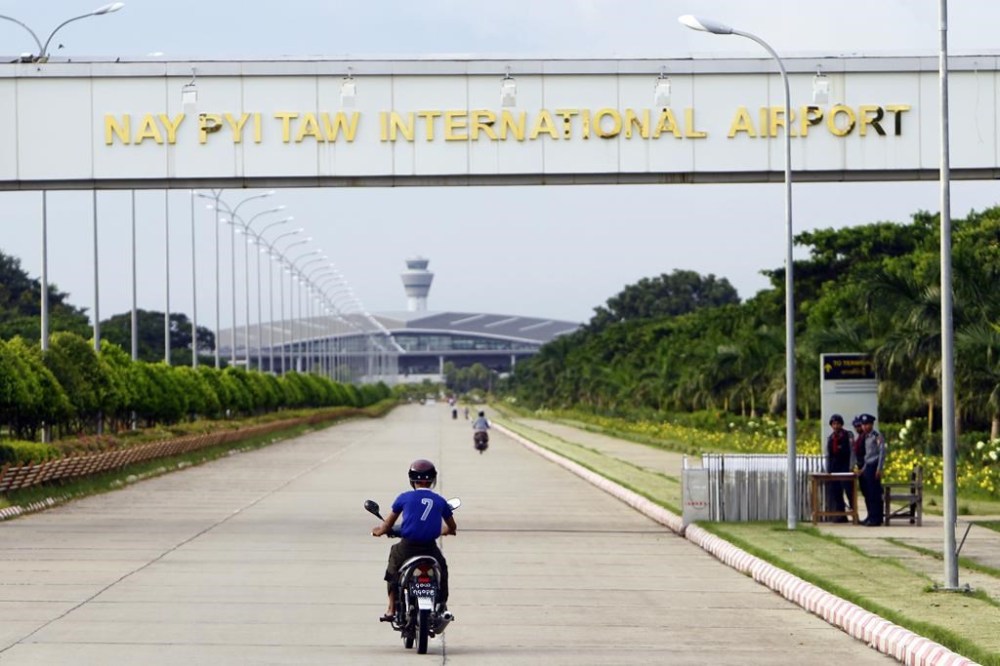UN chief appoints former Australian foreign minister Julie Bishop as UN special envoy for Myanmar
Advertisement
Read this article for free:
or
Already have an account? Log in here »
To continue reading, please subscribe:
Monthly Digital Subscription
$0 for the first 4 weeks*
- Enjoy unlimited reading on winnipegfreepress.com
- Read the E-Edition, our digital replica newspaper
- Access News Break, our award-winning app
- Play interactive puzzles
*No charge for 4 weeks then price increases to the regular rate of $19.95 plus GST every four weeks. Offer available to new and qualified returning subscribers only. Cancel any time.
Monthly Digital Subscription
$4.99/week*
- Enjoy unlimited reading on winnipegfreepress.com
- Read the E-Edition, our digital replica newspaper
- Access News Break, our award-winning app
- Play interactive puzzles
*Billed as $19.95 plus GST every four weeks. Cancel any time.
To continue reading, please subscribe:
Add Free Press access to your Brandon Sun subscription for only an additional
$1 for the first 4 weeks*
*Your next subscription payment will increase by $1.00 and you will be charged $16.99 plus GST for four weeks. After four weeks, your payment will increase to $23.99 plus GST every four weeks.
Read unlimited articles for free today:
or
Already have an account? Log in here »
Hey there, time traveller!
This article was published 05/04/2024 (643 days ago), so information in it may no longer be current.
UNITED NATIONS (AP) — U.N. Secretary-General Antonio Guterres appointed former Australian Foreign Minister Julie Bishop on Friday as his special envoy for Myanmar, a post that has been vacant for 10 months as the country’s conflict escalated into the worst violence since the military takeover in 2021.
Bishop will replace Noeleen Heyzer, a former U.N. undersecretary-general for Singapore who left after 20 months at the end of her contract in June 2023. In a grim assessment to the U.N. General Assembly before leaving, Heyzer said the impact of the military takeover has been “devastating,” with violence continuing “at an alarming scale.”
The nationwide armed conflict in Myanmar began after the army ousted the elected government of Aung San Suu Kyi in February 2021 and suppressed widespread nonviolent protests that sought a return to democratic rule.

Thousands of young people fled to jungles and mountains in remote border areas as a result of the military’s suppression and made common cause with ethnic guerrilla forces battle-hardened by decades of combat with the army in pursuit of autonomy.
Despite its great advantage in armaments and manpower, the military has been unable to quell the resistance movement. Over the past five months, the army has been routed in northern Shan state, is conceding swaths of territory in Rakhine state in the west, and is under growing attack elsewhere.
Assistant Secretary-General for political affairs Khaled Khiari told the U.N. Security Council on Thursday that the intensifying conflict is having a devastating impact on human rights, fundamental freedoms and basic needs of millions of people — as well as “alarming spillover effects” in the region.
“The civilian toll keeps rising” amid reports of indiscriminate bombing by Myanmar’s armed forces and artillery shelling by various parties, Khiari said.
In announcing Bishop’s appointment, U.N. spokesman Stephane Dujarric said she “brings extensive political, legal, management and senior leadership experience to the role.”
Bishop served as Australia’s foreign minister from 2013-2018 and previously held other Cabinet positions. She was a member of the Australian Parliament from 1998 to 2019 and is currently chancellor of the Australian National University.

